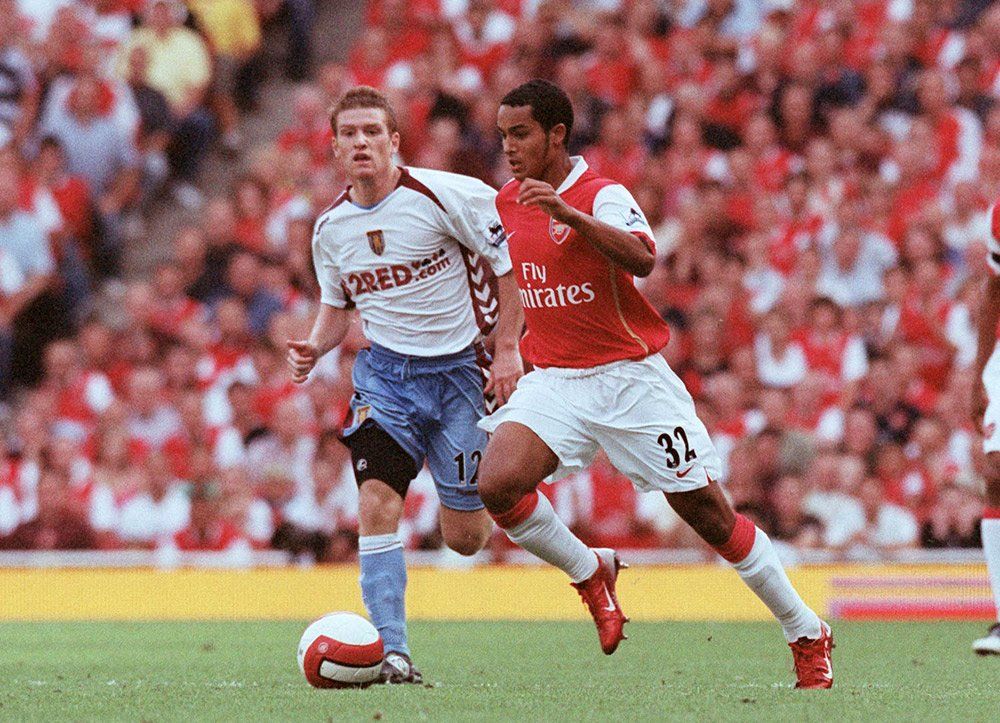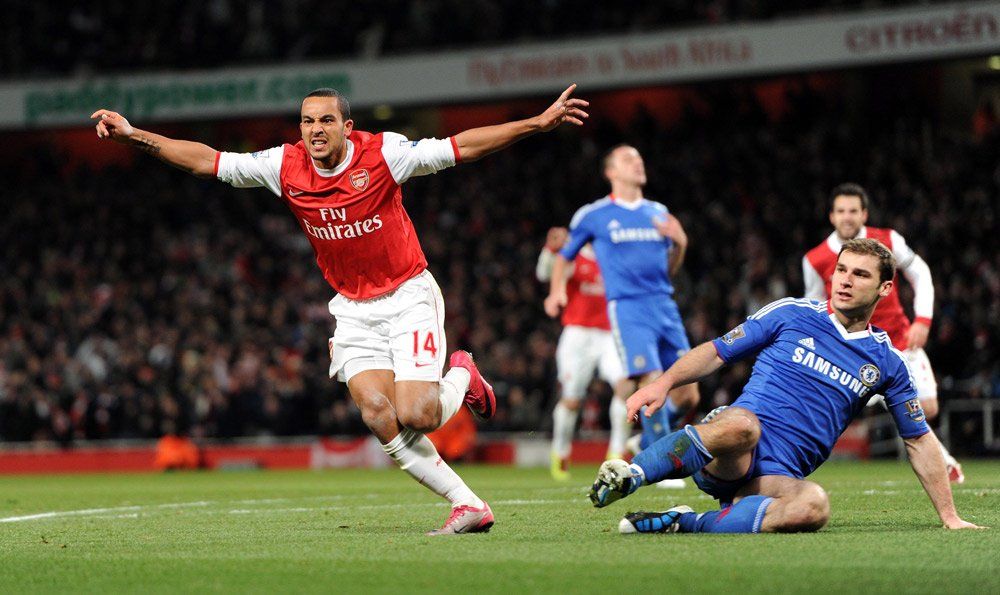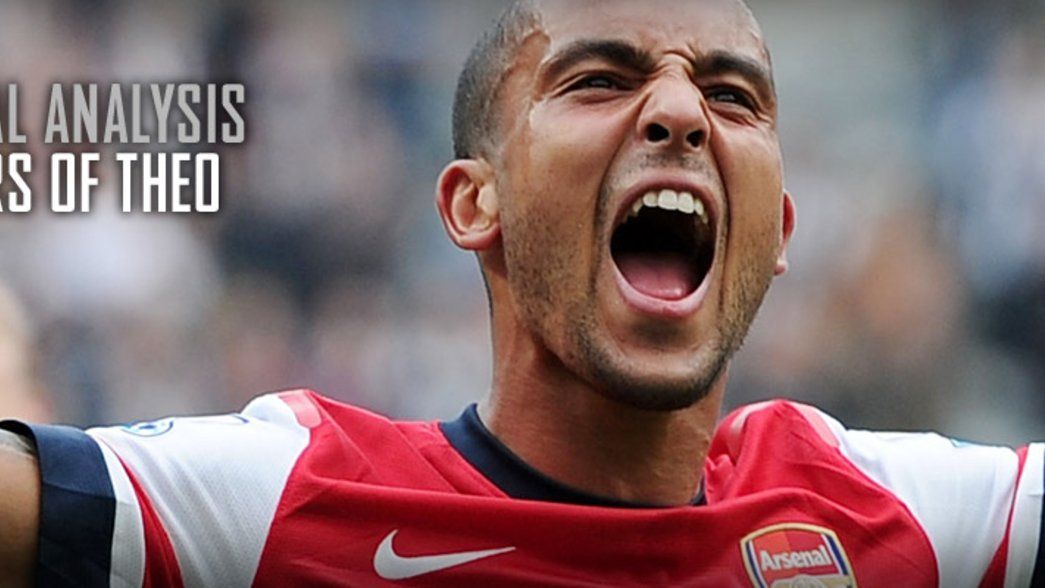While Arsenal fans needed to be patient with Theo Walcott’s development, it is worth remembering that as a 17-year-old he assisted an historic goal on his debut for the club in 2006.
On as a second-half substitute for Freddie Ljungberg, with Arsenal 1-0 down at home to Aston Villa, Walcott’s excellent run and cross found Gilberto, who scored the Gunners' first Premier League goal at the Emirates in a 1-1 draw. To have lost in the first game at the brand-new stadium would have been a significant blow - Walcott ensured they started the new era more positively.
He followed this up with another assist , this time for Mathieu Flamini, during his second appearance, against Dinamo Zagreb, and over his first couple of seasons Walcott proved to be a highly effective ‘super-sub’, usually introduced on the right to run at tired defences.

During this period, he was unfortunate that his moments of genius were often overshadowed by other events. For example, he scored two fine goals on a rare appearance up front at Birmingham in February 2008 to put Arsenal 2-1 ahead - but his exploits were forgotten among talk of Eduardo’s injury and the unnecessary late concession.
Two months later he went on a brilliant run in a Champions League match at Anfield before crossing for Emmanuel Adebayor to put Arsenal ahead (on away goals) in the tie, but Arsenal conceded almost immediately. These should have been the moments that marked his becoming a top-class player.
Walcott has always maintained that he considered himself a central striker rather than a winger. He was slightly unfortunate that, just as he was about to establish himself as a permanent fixture in the side, other events meant Arsene Wenger moved from a 4-4-2 system to more of a 4-3-3, and later 4-2-3-1.
While Theo would have been a perfectly viable striker alongside more of a target man, or a creative player able to drop deep, at a young age het didn’t have the all-round abilities required for a lone striker. He was instead usually deployed on the right flank, and also suffered from injury problems which held back his development.
Nevertheless, after surprisingly being omitted from England’s World Cup squad in 2010, he pushed on. With Robin van Persie now Arsenal’s regular central striker, having previously been considered more of a deep-lying option, Walcott’s runs in behind were perfect.

Van Persie tended to drop deep, creating space for Walcott to bomb into, and they struck up a wonderful understanding - a goal away at Blackburn early in 2010/11 showing their relationship perfectly. In that sense, Walcott often was effectively playing like a second striker with license to go in behind, rather than a true right winger. He hit nine league goals that season, as many as his three previous campaigns combined, and was man-of-the-match in the memorable 3-1 victory over Chelsea at Christmas.
After a good 2011/12 campaign, Theo pushed on further once Van Persie departed. Previously Arsenal relied heavily upon the Dutchman for goals, but now the scoring had to come from a wider range of sources, and Walcott contributed 14 goals and 12 assists in the league alone, his best-ever return. Overall he netted 21 times in 43 games that season, and his pace in behind worked excellently in conjunction with Olivier Giroud’s more traditional striking qualities.
Since then, Walcott has suffered from injuries, particularly the anterior cruciate ligament at the start of 2014, which effectively kept him out of action for a year.
But during this period, he showed his versatility and, shortly before that injury, had shone against Manchester City from the left, and then against Tottenham from his favoured centre-forward role. His movement and link play had improved significantly, and since his return at roughly this point last year, Wenger has deployed him on the right, on the left and, at last, through the centre.

Theo scores in the 2015 FA Cup final
From the latter position he was excellent in the 4-0 FA Cup final victory over Aston Villa last May, stretching the defence and smashing in the opener, while his superb curled effort in the crucial 2-1 victory over Manchester City shortly before Christmas showed his quality from the left.
“Theo is very intelligent. He always had pace and his movement off the ball was always perfect,” Wenger said this week. “I think he is much more conscious of teamwork and he has improved as well in his finishing. He is absolutely deadly compared to 10 years ago. He needed many chances to score a goal and he can finish very well. His final ball and his technique are much better.”
After a few false starts, Walcott is now established as a crucial player for club and country, and it’s amazing to think he’s still only 26. Ten years into his Arsenal career, the best might be yet to come. Discussion may continue about his best position, but he is now a useful option in three different roles.[PLAYER
_VIDEO: 858c1afccd77a4ee62beb78a7d93db1d]
Copyright 2024 The Arsenal Football Club Limited. Permission to use quotations from this article is granted subject to appropriate credit being given to www.arsenal.com as the source.










